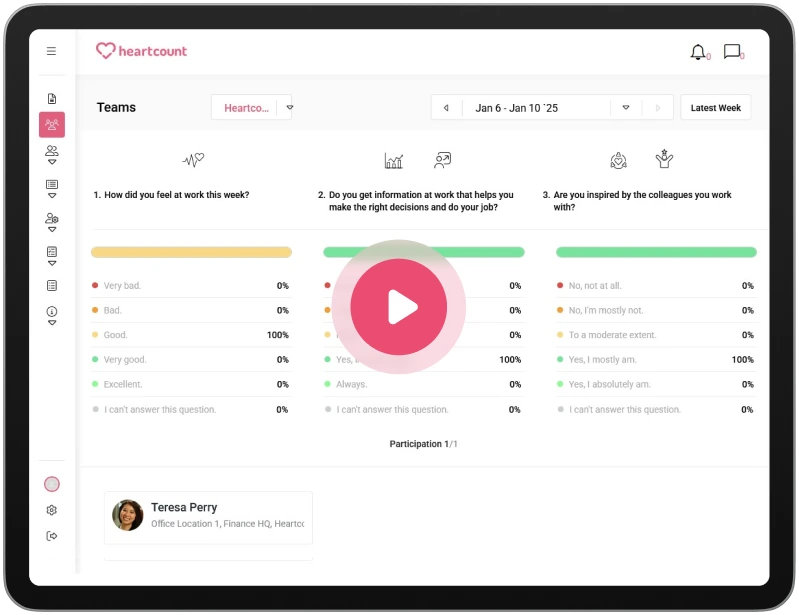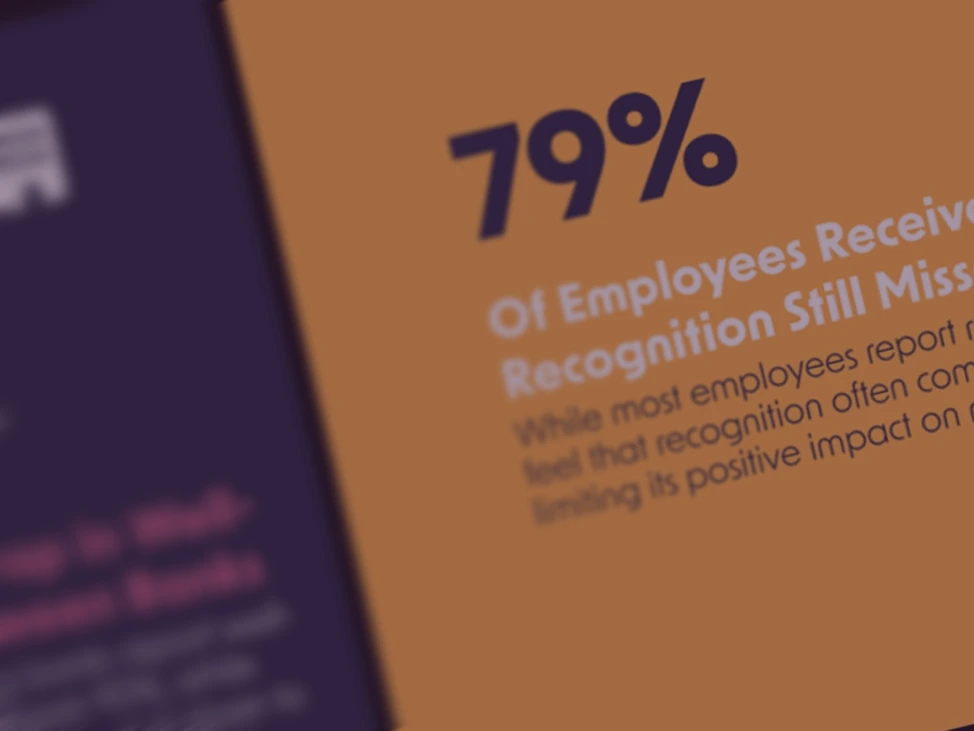Attitude Towards the Workplace

A few years ago, Bob Chapman had a very important meeting in France. Bob is the CEO of Barry-Wehmiller, a US industrial company with over 12,000 employees in over a hundred different countries. He was in France because their business model is to buy up different struggling industrial companies and bring them into the Barry-Wehmiller business model, there by making them more efficient.
This meeting was incredibly important because, in France, you need the approval from the unions in order to be able to buy up the company. I don’t know if you can imagine just how skeptical French employees would be of an American company coming into and buying up their organization. So he had to get them on board.
-
1.A CRUCIAL meeting
-
2.The attitude from employees towards the company is incredibly important for three reasons
-
3.How Relationships in the Workplace Affect Employees' Attitude Towards the Company
-
4.Three Factors That Help Employees Have a Good Relationship with the Organization
-
5.Why Heartcount Measures Attitudes Towards the Company on Weekly Basis?
A few years ago, Bob Chapman had a very important meeting in France. Bob is the CEO of Barry-Wehmiller, a US industrial company with over 12,000 employees in over a hundred different countries. He was in France because their business model is to buy up different struggling industrial companies and bring them into the Barry-Wehmiller business model, there by making them more efficient.
This meeting was incredibly important because, in France, you need the approval from the unions in order to be able to buy up the company. I don’t know if you can imagine just how skeptical French employees would be of an American company coming into and buying up their organization. So he had to get them on board.
A CRUCIAL meeting
I interviewed Bob for my book, Leading With Happiness, and he told me that he was in this meeting, sitting there with all these senior members of the industrial union at this French company, and he was expecting a lot of different objections. Then one of them spoke up and said, “Mr. Chapman, we visited your other company in Paris. We saw how things are done there. We saw how people are treated, and we want you to know we would like you to buy our company.” Then the president of the union looked at Bob and said, “we’ve been waiting for you for 32 years.” And he started crying.
What had happened was that they had seen that they could now be a part of an organization that truly values its employees and wants them to be happy at work. This is an amazing story and it really shows what can be achieved when employees have the right attitudes towards the organization. If you want to know more about this, you should read Everybody Matters, the book that Bob Chapman wrote. It is phenomenal.
The attitude from employees towards the company is incredibly important for three reasons
First: Retention. It’s obvious, but it should still be said that when employees have a positive attitude towards the organization, they will stay with the company longer. And that is absolutely something you want, to reduce employee turnover and the cost of hiring new employees.
Second: Effort. When employees genuinely care about the organization they work for, they will put in more of an effort. They will be willing to walk the extra mile for the company. They will be willing to go above and beyond in order to help the company reach its goal.
And third, and maybe something that people underestimate a little bit, is that when employees care about the company, they will work for the company’s goals. When they don’t, they will work for their own goals so that they can get ahead personally. And those two things might not always be in sync.
So, the way employees feel about the organization, their attitude towards the company, is incredibly important.
Here’s an important quote from the Canadian leadership academic, Henry Mintzberg:
“Corporations are social institutions, which function best when committed human beings, not human resources, collaborate in relationships based on trust and respect this straw, this and the whole institution of business collapses.”
COLLECT
How Relationships in the Workplace Affect Employees’ Attitude Towards the Company
I think we all know how important relationships at the workplace are. The most obvious one is the relationship that an employee has with their coworkers—the people they work with in their teams. Another very important relationship is the relationship between an employee and their immediate manager. We know from the research that the employees who have a bad relationship with their immediate manager are unhappy at work, and are much more likely to leave the organization.
But those are not the only relationships that matter for an employee.
Think of your favorite celebrity. Who’s your favorite movie star, or a singer, or an artist or whatever? Got one in mind? Mine is George Clooney. I think he’s awesome.
Now odds are that you have never met this person, but you might still know a lot about them. You might know a lot about their life situation. Who’s their partner? Are they single? Do they have kids? How many, and their ages and genders. Where do they live? What is their house like?
You might know a lot about their likes and dislikes. What kind of food do they like? What kind of music do they enjoy? You might know something about their political views, or the social causes they care about. And you might have a very strong sense of what that person is like as a person. Are they nice? Are they funny? Are they friendly? Are they stern, smart, or serious?
You’ve never met that person and yet, you still know a lot about them. In some ways you have a relationship with that person. These types of relationships are called parasocial relationships and it’s a fascinating new field of study that’s come especially into fashion with the rise of the internet where we get increasingly more of the inside look into the lives of many celebrities through their Instagram accounts, for instance.
And here’s the point: I argue that an employee has a relationship with the company they work for that is shaped mostly by their relationship with the upper management, primarily with the CEO. And even if employees never, or rarely, meet the CEO, they will still have a similar parasocial relationship with that CEO. They might have a sense of what the CEO is like. When the CEO says something, can I trust them? Can I actually believe what they say? Does this person care about me, or do they just not give a damn about the employees? If I were to point out a problem in the organization, would the CEO and the upper management actually listen to me or not?
Even if an employee were to never ever meet the CEO, they would still have a sense of what that person is like. They would still have a sense of the answers to these questions, and they would still have that parasocial relationship with the upper management.
And the quality of that relationship would absolutely shape the employee’s attitudes towards the organization. And, as we saw, making sure that employees have a good relationship, a good attitude towards their workplace is incredibly important.
Three Factors That Help Employees Have a Good Relationship with the Organization
So how do you do it? There are three factors that I think really play into this and help employees have a good relationship with the organization.
First, the company must care about the employees. If you want employees to care about the company, the company must care about them. It cannot be a one way street. If you want employees to go the extra mile for the company, the company has to go the extra mile for their employees. It has to go both ways.
A good example of that comes from Barry-Wehmiller, and you can read about it in Chapman’s excellent book Everybody Matters.
In 2008, when the global financial crisis hit, they lost a ton of business and they were really struggling financially as a company. The banks and their creditors were telling them, “you should downsize and fire some employees to save some money.” But they said no, we can’t do that because our employees are incredibly important to us, and we want to protect their careers.
So they worked very, very hard to find a way to help the company survive without layoffs, and they did it. They did not fire a single person during the global financial crisis.
It has to be a two way street. If you want the employees to care about the company, the company has to care about the employees, and the upper management has to show it.
But I can’t tell you how many workplaces I have seen that claim to care about their employees. They say “our employees are our number one asset,” and then the second there is a downturn in the market, they immediately turn around and lay off 10% of their employees claiming, “well, we had to do it, there was nothing else we could have done.” That just shows that they don’t care. And if you don’t care about your people, why on earth should they care about you?
The second thing you can do to create a better relationship between employees and the company is to constantly listen to your people, and improve their conditions. On the other hand, if you see that your employees have a lot of problems and you don’t do anything about them, it shows very, very clearly that you just don’t give a damn. So listening to your employees, inviting them to share their problems, and then fixing them is incredibly important.
That is built right into Heartcount. The app has a feature where employees can give feedback to the upper management, either with their name on it or anonymously, if they prefer. And, that way, you can actually hear what’s going on with your people, hear their concerns and worries, and you can address them and act on them. I just visited a workplace that is so interested in the employees’ feedback that whenever an employee gives anonymous feedback to the upper management, they actually buy a cake for the employees. Yep. Free cake, if you give your feedback, your criticisms and your problems. I think that is amazing.
The third thing you can do to make sure that your employees have a positive attitude towards the organization is to make sure that your organization has a meaningful, positive vision. If all a company cares about is profits, or growth, why should I, as an employee care about that? I mean, that’s nice, I guess, but it’s not very inspiring or motivational.
On the other hand, if my company actually stands for something positive and is on a mission to make the world a better place in some big or small way, then it’s much easier for me as an employee to actually care about the organization, and to give a damn about whether or not the organization reaches its goals.
My favorite example of this is still Patagonia. I talk about them a lot because they are awesome. Patagonia is a US company that makes sportswear, swimwear, outdoor gear, that kind of thing and their mission is to save the planet’s environment.
They do that in so many ways, including this: Every year they donate 10% of their profits, or 1% of turnover, whichever is larger, to environmental charities. They also allow employees to take time off to work for environmental organizations and so on. In so many ways, they show that yes, profits matter because that’s what keeps an organization alive, but what matters more to them is improving the environment on the planet and making sure that we can all live here many, many years in the future. That’s incredibly inspiring. And that means that employees have something to relate to, something to care about beyond growing profits by 1.8% in the next fiscal quarter, which is super boring.
Why Heartcount Measures Attitudes Towards the Company on Weekly Basis?
So, the point here is that the way employees feel about the company, their attitudes towards the organization, their relationship with the company is incredibly important. When that relationship is bad, they will not work for the company; they will work for themselves. They will mainly try to further their own goals, or they will only do just enough work to not get fired. Also, you will have to motivate them every step of the way to do their jobs.
But when employees have positive attitudes towards the company, you don’t need to motivate them every step of the way. They will motivate themselves because they deeply and genuinely care about the organization reaching its goals.
That’s why it’s so important. And that’s why it’s one of the eight factors that we measure weekly in Heartcount so that you can know whether or not your employees actually care about the organization.









